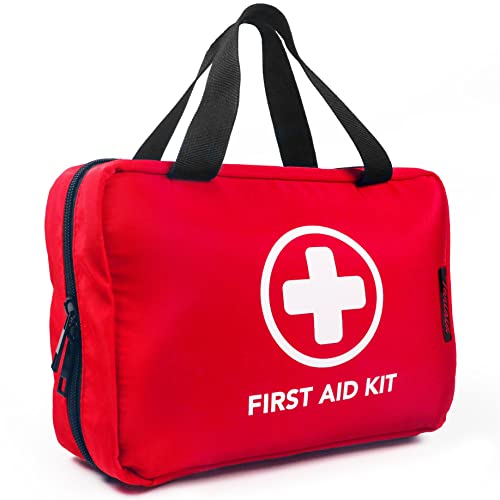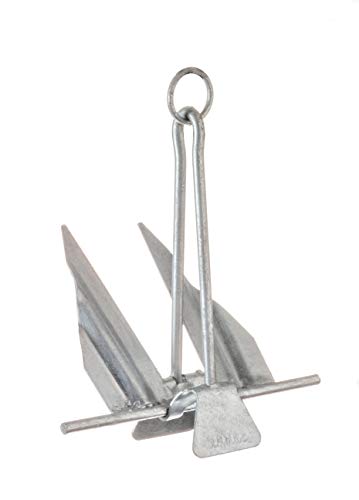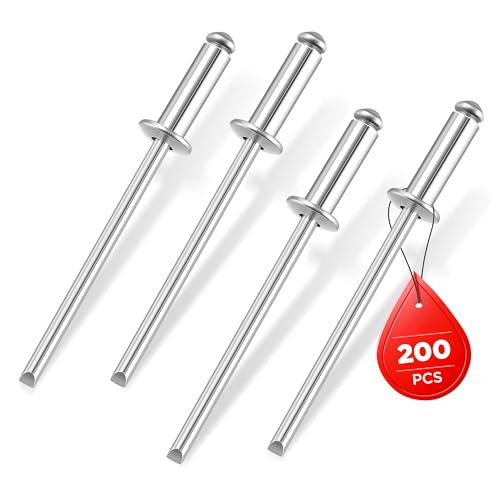You are using an out of date browser. It may not display this or other websites correctly.
You should upgrade or use an alternative browser.
You should upgrade or use an alternative browser.
Treated plywood
- Thread starter Rebelwork
- Start date

Help Support TinBoats.net:
This site may earn a commission from merchant affiliate
links, including eBay, Amazon, and others.
Treated wood ... if standard pressure-treated wood by chemicals; can kill the boat, corrode the tin.Rebelwork said:Are many not using treated plywood for stringers. Something else?
But some here do use 'sealed' wood, either epoxy of the Old Timers Formula, but more using plywood for floors or bulkheads and structural woods, 2x2, etc,, for framing.
lckstckn2smknbrls
Well-known member
- Joined
- Oct 5, 2008
- Messages
- 5,065
- Reaction score
- 411
- LOCATION
- Lake in the Hills Illinois
The old arsenic treated wood is still available and is used for aluminum pontoon boat decks.Rebelwork said:Somebody else did a conversation and thought they did it wrong till lowes confirmed it was safe for aluminum..
It could be the the copper or other. It not the same as years past.

$29.39
$34.59
Seachoice Cast Aluminum “S” Dock Cleat, Corrosion Resistant Aluminum, 12 In.
Amazon.com

$212.46 ($212.46 / Count)
$249.95 ($249.95 / Count)
MediTac Marine Boat First Aid Medical Kit with Lightweight and Water Proof Black Case
BP MEDICAL SUPPLIES

$42.06
$45.65
STAR BRITE Telescopic Floating Extend-A-Brush Quick-Connect Handle with Boat Hook Attachment, 3'-6' (040054)
Amazon.com

$9.99 ($5.00 / Count)
Automotive Authority Plastic Grab Handle-Entry Door Assist Bar for RV, Trailer, Camper, Motor Home, Cargo Trailer, Boat-OEM Replacement (Black)
Quality Parts Now

$45.99 ($0.14 / Count)
$49.99 ($0.15 / Count)
330 Piece First Aid Kit, Premium Waterproof Compact Trauma Medical Kits for Any Emergencies, Ideal for Home, Office, Car, Travel, Outdoor, Camping, Hiking, Boating (Red)
THRIAID

$104.98 ($104.98 / Count)
Ever-Ready Industries Premium Trauma First Aid Kit for Outdoors, Workplace, and Home - Exceed OSHA Guidelines and ANSI 2009 Standards - 240 Pieces - Includes Bonus Travel Kit
EVER-READY INDUSTRIES

$21.89 ($21.89 / Count)
$26.88 ($26.88 / Count)
First-Aid-Kit-for-Car-Home-Travel-Camping-Businesses, 263pcs Compact Waterproof Hard Case, Public Emergency Medical Kits - Perfect for Survival, Vehicle, Boat, Sports, Hiking, Office, Dorm (PUMIER)
Pumier Medical

$66.80
Seachoice Sterling Series Boat Cover, Water Resistant, 14-18 Ft., Fish and Ski Boat
Autoplicity ✅

$19.00 ($0.59 / Fl Oz)
$24.17 ($0.76 / Fl Oz)
STAR BRITE Instant Hull Cleaner - 32 Oz Gel Spray - Easily Remove Stains, Scum Lines & Grime on Boat Hulls, Fiberglass, Plastic & Painted Surfaces - Easy to Use Formula (096132)
Amazon.com
Definately not the green treated stuff, It will corrode the aluminum, As far as the other treated stuff, Im not to sure. But for all the work that goes into modifying one of thes boats, just buy marine grade plywood or MDO plywood, Then you know you will be good.
maintenanceguy
Well-known member
The old pressure treated chemical was chromated copper arsenate (CCA). It was the copper in the chemical that ate away aluminum. CCA was done away with almost 20 years ago. It's a really good treatment for wood and is still able to be used for some specialized applications but you won't find it at your local lumberyard anymore.
There are a bunch of new chemicals that replaced CCA. Some of these contain copper, some don't. There is probably pressure treated lumber that is aluminum safe but I don't know how to know which chemical was used on your plywood.
There are a bunch of new chemicals that replaced CCA. Some of these contain copper, some don't. There is probably pressure treated lumber that is aluminum safe but I don't know how to know which chemical was used on your plywood.
Someone used treated. Contacted Lowes. Manufacture says safe for aluminum. Knowing which one is and isn't is the key. Because the boat may be I the garage most of the time in winter and fishing fresh water I think the mdo painted should he fine.
rcaircraftnut
Well-known member
Lowe's carries ECOLIFE treated. It IS safe for aluminum. Absolutely no copper. Environment safe they say.
However. You still have to seal it and keep it dry or it will rot or come apart. ALL plywood will do this. Even marine grade. None of it is waterproof.
However. You still have to seal it and keep it dry or it will rot or come apart. ALL plywood will do this. Even marine grade. None of it is waterproof.
idruthrbfishin
Well-known member
- Joined
- Nov 20, 2018
- Messages
- 76
- Reaction score
- 0
I have been using construction grade plywood in my boats for over 25 years. As long as you put 2 good coats of 2 part epoxy sealer on it, you are good. I've always used Gluvit, and it works great, but it is expensive. Someone on here suggested a similar alternative, which was much more reasonable. http://www.raka.com/ Incidentally, those of you using marine grade plywood should be doing this also.
rcaircraftnut
Well-known member
Seems like people can't understand this. Please pay attention all who plan to use or recommend plywood in a boat. Repeat after me. The term "marine grade" does NOT mean or translate in any language to "waterproof" "resistant" ect. It is just a grading name that means basically no voids or defects in any of the veneers. In other words the best you can buy. But it most definitely is NOT water proof in any way and will come apart just as fast as construction grade when soaked and or rotted. It has to be sealed or it will rot. Period.
maintenanceguy
Well-known member
The advantage of marine grade plywood is that you can seal all of the edges. Because normal plywood has voids, all cut edges have holes in them from missing chunks of the various laminations. Cut marine grade plywood has a solid edge that can be sealed well.
But...for the price, I'll use regular plywood for floors or anything not likely to get wet. If I have to replace it every 5 years, not a big problem.
But...for the price, I'll use regular plywood for floors or anything not likely to get wet. If I have to replace it every 5 years, not a big problem.
CedarRiverScooter
Well-known member
- Joined
- Nov 13, 2014
- Messages
- 1,522
- Reaction score
- 6
When sealing plywood with edge void, I just keep feeding it epoxy until it is full (edge up, of course).
idruthrbfishin
Well-known member
- Joined
- Nov 20, 2018
- Messages
- 76
- Reaction score
- 0
rcaircraftnut said:Seems like people can't understand this. Please pay attention all who plan to use or recommend plywood in a boat. Repeat after me. The term "marine grade" does NOT mean or translate in any language to "waterproof" "resistant" ect. It is just a grading name that means basically no voids or defects in any of the veneers. In other words the best you can buy. But it most definitely is NOT water proof in any way and will come apart just as fast as construction grade when soaked and or rotted. It has to be sealed or it will rot. Period.
Well said rcaircraftnut. Everyone seems to think marine grade PW is the creme de la creme, when in reality they're just wasting their money. Regular PW when well coated with epoxy is 10x better than MGPW as far as rot goes.
Well, I bought a Mako recently and I'm going to replace the deck on it due to soft spots and removal/replacement of the fuel tank. I'm going to use marine grade but it will be totally encapsulated in resin and two plies of fiberglass. Anyone see anything wrong with this? I've never done fiberglass work so it will be a first for me.
lckstckn2smknbrls
Well-known member
- Joined
- Oct 5, 2008
- Messages
- 5,065
- Reaction score
- 411
- LOCATION
- Lake in the Hills Illinois
That will work just fine.eeshaw said:Well, I bought a Mako recently and I'm going to replace the deck on it due to soft spots and removal/replacement of the fuel tank. I'm going to use marine grade but it will be totally encapsulated in resin and two plies of fiberglass. Anyone see anything wrong with this? I've never done fiberglass work so it will be a first for me.
If you want to save a few bucks use exterior grade plywood, ACX or BCX.
rcaircraftnut
Well-known member
Marine grade is really nice stuff to work with. However it's expensive and usually hard to get. At least in my area. Good luck with your repair.
lckstckn2smknbrls said:If you want to save a few bucks use exterior grade plywood, ACX or BCX.
More than just 'a few bucks' here.
1/2" x 4' x 8' Marine Grade: $89
1/2" x 4' x 8' ACX $50
1/2" x 4' x 8' BCX $30
Since I'm sealing and carpeting all wood - I've already decided on BCX for the F-9...gotta keep costs within my meager budget.
Similar threads
- Replies
- 0
- Views
- 80
- Replies
- 15
- Views
- 2K
- Replies
- 11
- Views
- 514
- Replies
- 13
- Views
- 2K
- Replies
- 11
- Views
- 1K











































